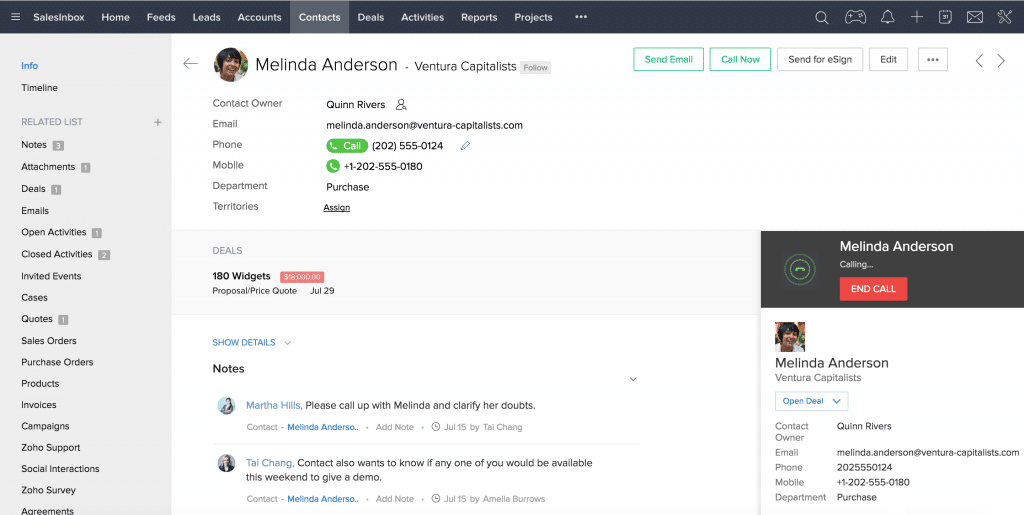When your business first starts to get off the ground, it’s exciting. You’re up and running, you’re starting to attract new clients, and soon you’ll be so big your name will be up there with Amazon and Google.
Well… not so fast.
Although we’ll never deter someone from dreaming big, trying to grow before you’re ready can seriously hurt your company’s success.
Growth is almost always the goal for any company, but if that growth isn’t sustainable, all that effort ends up being for nothing. In other words, you need to focus on scaling, not growing.
But what’s the difference, and what’s the right way to scale your business? Keep reading to find out.
What’s the difference between scaling and growing a business?
Many people use “scale” and “growth” interchangeably. While they might be similar, they’re not the same.
When people say “growing” your business, they usually just mean getting new customers or hiring new team members. It’s growth in the most basic sense—growing your business comes down to bringing more people into your customer or employee circle.
However! Bringing on more people (either customers or employees) isn’t always a good thing. If the demand from customers increases beyond what you can realistically handle, or you hire employees without processes in place to properly onboard and manage them, you’re building a business on a fragile foundation.
In the first case, you risk losing customers because your product (or service) can’t keep up with the increased demand, and in the second case, you risk overspending on all those new hires without a plan in place for how to put that new staff to work efficiently.
This is why we focus on scaling—not growing.
Scaling your business means that while you’re increasing sales and bringing on new employees, you also have workload, processes, and production strategies in place to properly manage that growth. For example, if you want to scale, you might use a piece of software that allows your team to handle way more customer messages and questions—without having to hire more people.
Properly scaling your business isn’t easy, but it’s doable—it just involves a lot of preparation. Let’s look at what you should do before scaling your business and a few tips that’ll increase your chances of scaling successfully.
When is the right time to scale your business?
Timing is crucial when it comes to scaling your business. But how do you know when it’s the right time?
There is no universal timeframe for starting to scale. One company might be ready for growth after only a few months in business while another might not take its first step until it’s passed year one. And scaling can come in phases—so you might find yourself revisiting your scaling process after you’ve already successfully scaled your business once before.

Instead of thinking about it in terms of an expected time period, look for key signs that you need to scale.
One of the first indications that it’s time to scale is that you’re experiencing some growing pains. You’re pushing the upper limits of what your current processes or team can handle. You’re still making it work, but with the increase in sales and (high-quality) prospects, you’re starting to feel overwhelmed.
While you might be able to credit this pressure to a busy rush or a viral ad campaign, these high-demand periods might be a sign you need to start coming up with a scaling plan. If this level of demand becomes your new normal, how will you keep up?
Although you might not be ready to put your scaling plan into place, you need to work out the details of how you’re going to remain cost-efficient while delivering your products or services to the quality level your current customers know and expect.
What do you need to scale a business?
Okay, you know that you’re probably ready to scale your business. Before you leap into action, you need to get a few things ready…
1. The right people
Any time you try to grow your business, you’ll find that having the right people on your team makes all the difference. When you have people committed to the success of your business, everything else just comes easier.
But in addition to having people in your corner excited for new growth and opportunities, you need to make sure they’re in the right roles.
Scaling often requires new marketing executives and sales professionals to attract prospects’ attention and close deals. And while that’s certainly a great start, you need to make sure you’re properly staffed in other departments as well.
For example, if you have a sudden influx of new customers but you haven’t grown your customer support team, your new customers may contact you with questions or concerns only to be met with long wait times, potentially pushing that new business away for good.
Assess your entire company and look for weak points or areas that might need some additional support.
2. The right tools
It’s hard to scale a business without the right tools and apps supporting your strategies and systems. The tools you’ll need will depend on your unique business, but here are some essentials for almost every company:
- A CRM. A customer relationship management tool does exactly that—helps you manage your customer relationships. Before starting to scale, implement a CRM to help you keep an eye on the status of all your new (and old) customer relationships. Now, having a log of these relationships is one thing, but being able to communicate with them and answer their questions is a different story. What if you’re getting questions from customers (and prospects) over not only email and phone calls, but also social media and live chat? If that’s the case, then you’ll most likely need some type of contact center solution.For example, RingCentral’s Engage Digital platform can consolidate all your customer conversations across Facebook, Twitter, Instagram, and more in one place so that you don’t have to waste time and energy constantly toggling back and forth between different windows:

This is a perfect example of how technology can help you scale up your business. Even with a small team (or a team of one), you can easily manage a growing range of different communication channels—and with less effort too.
- A team communication platform. Keeping in touch with your team members and business partners is just as important as it is with your customers or clients. But that doesn’t mean that you should be “always on.” That’s a good way to burn out, and you don’t want that—especially if you have big plans to grow the business. The answer to that just might lie in the concept of asynchronous communication: not everything needs to be a real-time meeting, and not every message needs to be answered immediately. So, try to find tools that give you different communication options (you just might find that it helps you get answers more quickly and reclaim some time in your day):
- An automation tool. While you can’t automate every single task you do or every step in the scaling process, you can automate certain tasks like following up with prospects, alerting team members of items that need attention, and reporting and analytics. Learn more about how to do that here.

When you’re looking for tools to help scale your company, keep your eye out for options that can do more than one thing well. The fewer apps your team needs to get familiar with or check every day, the more time they have to spend on more high-value or complex tasks. The other advantage of choosing more versatile apps instead of one-trick-ponies is that it can also keep your costs low since you don’t have to pay for as many monthly software subscription fees.
If you do want to go the versatility route, one example of a tool to look at is RingCentral. Not only does it let you do a whole range of things (messaging, video conferencing, phone calls, screen sharing, file sharing, and more) all in one app, it also integrates with many popular CRMs like Cloze, Copper, and Zoho:

With all-in-one communications solutions, you don’t have to worry about checking notifications across a handful of different apps. You can chat with your team, assign tasks to one another, and even share documents and important files all in one place. By eliminating that friction (for not only yourself, but also for your team or even the whole company), you make it easier to scale up the business.

3. The money
Unfortunately, the saying “you gotta spend money to make money” is especially true when it comes to scaling. Not only do you have new hires to pay and apps and tools eating up some of your budget, but you also need to have the funds to increase production and distribution of products.
How you find the funds is up to you—you can bootstrap, save up, take on an investor, or apply for grants. But the important part is that you understand the expenses associated with growth.
Have a money plan before you get started. If you try to bite off more than you can chew (or in this case, afford), you might find yourself deep in a hole of debt that’s hard to get out of. Secure the funding before you get in too deep.
But be smart about how you allocate your funds. Money will be tight as you scale, so make sure you’re investing in people, processes, and tools that are worth what you’re putting in. Again, in most cases, hiring good talent is going to cost you more (and be a better investment) than using lots of expensive software.
That being said, don’t just go for the cheapest tools and call it a day. That’s not the best way to save money—”cheap and low-quality” is most likely going to cost you in the long run with time and money wasted on maintenance. This is easily avoidable though. Keep costs down the smart way: choose quality software with good reviews and customer support so you can boost productivity across your team while making sure you’re getting the best bang for your buck.
5 tips to scale your business for success
After all this planning, it’s finally time to scale. Here are some ideas to help you scale your business for success.
1. Know what your customer wants
You can think you know what your customer is looking for only to find out you were completely off the mark. If you’re investing in products or services that your customers aren’t really interested in, well… that’s wasted time and money.
If you’re going to scale, you need to know exactly what your audience is looking for. Here are some questions to help you figure that out:
- Who are my customers?
- How do they purchase products/services?
- What challenges do my customers face day to day?
- What solutions are my customers looking for?
- What do my customers need to make their work/day easier?
For deeper insights, talk to your existing customers. Find out what they really enjoy about the products or services you’re offering and where they would like to see some improvements.
Take this feedback and turn it into tangible changes within your business or the products you offer. Show your customers that you’re listening and you want to do all you can to meet their needs and expectations.
When you’re aligned with customer expectations and you’re providing them with things they actually need (meaning, not things you need to convince them they need), it will be easier to make genuine connections that lead to long-lasting business relationships.
This is where a versatile tool like RingCentral can come in. Because RingCentral connects to your CRM, you can use the app to connect with customers, ask them questions, and store their feedback. Team members can refer back to notes when communicating with the customers, showing that you are paying attention to the feedback they give.
2. Emphasize what makes you different or better
No matter what you’re offering, you’re going to have competitors. Even if your products and services are totally unique, there will always be alternatives that could take your business away.
If it’s not clear why customers should choose you instead of one of those alternatives, scaling can be a challenge. Successful and sustainable growth depends on you attracting and retaining customers—something that can be challenging if they’re not connecting with you as a business.
Build your differentiating factor into the foundation of your business. How do you approach customer challenges differently? Why is this beneficial to customers?
When you find a unique way to make your brand stand out, it means you’ll attract customers who find that specific value most important. By connecting on something beyond just the product you’re selling, you can connect with customers who share similar values or interests.
Deeper connections with customers mean they’re more likely to stick around, so you can scale faster.
3. Focus on your core offerings
If you’re trying to be something different for everyone, scaling will be a real challenge. While it might seem like it makes sense to meet the needs of as many customers as possible, this approach isn’t scalable.
Offering too many products or services can make customer relationships difficult to manage, and you’ll have a hard time controlling the quality of so many different items. In the end, you’ll end up doing a lot of things, but you won’t do them very well.
Instead, focus your core offerings on just a few really solid items. What are your most popular products? What services do you get referrals for again and again? What items could you eliminate without disrupting too much of your existing business?
While scaling, keep your focus small. Only offer things you can do really well and that are in high demand. Once you start to get your footing again, you can start to reintroduce new products or services that supplement your core offerings.
4. Standardize your processes
Up until this point, we’ve talked a lot about scaling in regards to making the right connections with your customers. However, in order to sustain those new connections, your team needs to have the right processes in place.
When you’re still small, you don’t really need standardized processes. You might only have one team member that handles the sales or customer support, and for the most part, they can control the processes and systems they use to get their job done.
But when you start to build your team, you can’t have every employee making up their own way of doing things. Not only is this asking for trouble, but it can create friction that makes it difficult for your team to work together.
Standardizing your processes and training each team member in them appropriately can keep everything moving forward smoothly. When everyone knows what needs to be done and exactly how it should be done, you can avoid errors and unnecessary roadblocks that slow down your growth.
5. Prioritize relationships and collaborations
It’s hard to scale your business alone. There’s a lot of work to be done—something one person can’t take on completely by themselves. To scale efficiently, you need to depend on relationships, partnerships, and collaborations.
Leaning on fellow business owners, vendors, and other partners can help you get in front of new audiences, build trust with your customers, and reach new levels of success faster.
Collaborate with a business that isn’t a direct competitor but shares an audience with you or has access to the customers you want. For example, you could be interviewed on a podcast whose audience overlaps with your own. This can be a great way to share your brand message.
A great example of this is mattress brand Casper and home goods store West Elm. Back in 2016 when Casper was still a new startup, it partnered with West Elm1, a brand with an already established audience, to showcase their mattresses. And because mattresses weren’t West Elm’s primary product, they could share their customers without losing business of their own.
But don’t just look at these as sales opportunities. To successfully scale, focus on building long-term relationships with partners you can work with again and again.
Ready to scale your business?
Don’t be afraid of scaling your business. When you start preparing early on and you lay the right foundation, taking the appropriate steps to scale won’t seem quite as overwhelming.
Start with the basics—figure out what you need to do to scale before your growth gets out of your control. Then, just take it one step at a time.
1money.cnn.com/2016/06/29/technology/casper-west-elm/index.html#:~:text=Now%2C%20it’s%20announcing%20a%20deal,Elm’s%20catalog%20and%20its%20website.
Looking For Startup Consultants ?
Call Pursho @ 0731-6725516
Telegram Group One Must Follow :
For Startups: https://t.me/daily_business_reads







